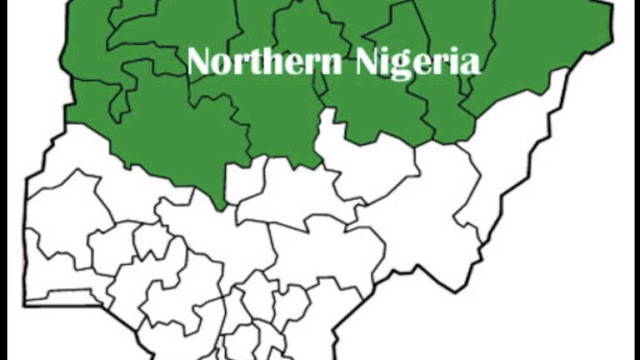The escalating insecurity in Northern Nigeria has reached alarming levels, prompting a strong reaction from prominent northern leaders who have described the situation as “unacceptable” and a threat to the region’s stability and development. The surge in banditry, kidnapping, terrorism, and communal clashes has left communities in disarray, with lives lost, properties destroyed, and millions displaced. Northern leaders, under various platforms, have voiced their concerns, calling for immediate and coordinated action from both the federal government and regional stakeholders to address the crisis. This article delves into the complexities of the insecurity crisis, the responses from northern leaders, the underlying causes, and the urgent need for sustainable solutions.
The Growing Crisis of Insecurity in Northern Nigeria
Northern Nigeria, a region comprising 19 states and historically known for its cultural diversity and economic potential, has been grappling with multifaceted security challenges for over a decade. The region, which includes the North-West, North-East, and North-Central zones, is plagued by a range of violent activities, including Boko Haram insurgency, banditry, kidnapping for ransom, farmer-herder conflicts, and ethno-religious clashes. These issues have not only destabilized the region but have also had ripple effects on Nigeria’s overall security and economic landscape.
In recent years, the situation has deteriorated significantly, with bandits and terrorists becoming more audacious in their attacks. Rural communities, in particular, have borne the brunt of these attacks, with villages razed, farmlands abandoned, and schools shut down due to fear of abductions. The North-West, including states like Zamfara, Katsina, and Sokoto, has become a hotspot for banditry, with armed groups operating with impunity, attacking communities, and kidnapping citizens for ransom. In the North-East, Boko Haram and its splinter group, the Islamic State West Africa Province (ISWAP), continue to wreak havoc, despite military efforts to curb their activities. The North-Central zone, particularly Benue, Plateau, and Nasarawa, has seen recurring clashes between farmers and herders, often fueled by competition over land and resources.
The human toll of this crisis is staggering. Thousands of lives have been lost, and millions of people have been displaced, creating one of the world’s largest populations of internally displaced persons (IDPs). Schools have been shut down, exacerbating the already high rates of out-of-school children in the region, which has one of the lowest literacy rates in Nigeria. The economy of the North, heavily reliant on agriculture, has been crippled as farmers are unable to access their farmlands due to fear of attacks. This has led to food insecurity, with many communities facing hunger and malnutrition.
Northern Leaders’ Outcry: A Unified Stance Against Insecurity
The worsening security situation has drawn sharp criticism from northern leaders, who have labeled it as “unacceptable” and a betrayal of the region’s potential. Prominent figures, including traditional rulers, religious leaders, politicians, and civil society organizations, have called for urgent action to address the crisis. The Northern Elders Forum (NEF), Arewa Consultative Forum (ACF), and other regional groups have been vocal in their condemnation of the government’s handling of the situation, accusing both federal and state authorities of failing to protect citizens.
The Sultan of Sokoto, Alhaji Muhammad Sa’ad Abubakar III, one of the most influential traditional rulers in Nigeria, has repeatedly expressed concern over the deteriorating security situation. In various public statements, the Sultan has emphasized the need for unity among northern leaders to tackle the crisis, urging the government to adopt a more proactive approach. He has also called for community-based solutions, including dialogue with stakeholders and addressing the root causes of insecurity, such as poverty, unemployment, and lack of education.
Similarly, the Northern Governors’ Forum, a platform comprising the 19 governors of the northern states, has described the situation as a “collective failure” and stressed the need for synergy between federal and state governments. The Forum has advocated for the modernization of security infrastructure, including the deployment of technology such as surveillance systems and drones to monitor remote areas prone to attacks. They have also called for the recruitment and training of more security personnel to bolster the region’s security apparatus.
The Arewa Consultative Forum, a socio-cultural organization representing the interests of the North, has been particularly critical of the federal government’s approach. The ACF has accused the government of being reactive rather than proactive, pointing to the lack of a comprehensive strategy to address the root causes of insecurity. The group has called for a review of Nigeria’s security architecture, including decentralizing the police force to allow for state and community policing, which they believe would be more effective in tackling localized threats.
Underlying Causes of Insecurity
The insecurity in Northern Nigeria is a complex issue with deep-rooted causes that require a multifaceted approach to address. One of the primary drivers is poverty, which is pervasive in the region. The North accounts for a significant portion of Nigeria’s population living below the poverty line, with states like Sokoto, Zamfara, and Borno having some of the highest poverty rates in the country. This economic hardship has created fertile ground for criminal activities, as unemployed youths are often recruited by bandit groups or terrorist organizations with promises of financial rewards.
Unemployment, particularly among the youth, is another major factor. The lack of job opportunities has left many young people vulnerable to radicalization and recruitment into criminal gangs. The region’s low literacy rates, coupled with the high number of out-of-school children, exacerbate the problem, as many youths lack the skills or education needed to secure gainful employment.
Another significant factor is the proliferation of small arms and light weapons, which has fueled the activities of bandits and terrorists. The porous borders in the North, particularly with neighboring countries like Niger, Chad, and Cameroon, have facilitated the influx of illegal arms, making it easier for criminal groups to arm themselves. Weak governance and corruption have also hindered efforts to curb the insecurity, as resources meant for security operations are often mismanaged or misappropriated.
The farmer-herder conflict, a longstanding issue in the North-Central zone, has also contributed to the insecurity. Competition over land and water resources has led to violent clashes between nomadic herders and sedentary farmers, often resulting in significant loss of life and property. Climate change has exacerbated these conflicts, as desertification and shrinking grazing lands have forced herders to migrate southward, bringing them into conflict with farming communities.
Government Response and Criticisms
The Nigerian government has taken several steps to address the insecurity in the North, including military operations, community engagement programs, and the establishment of special task forces. Operations such as Operation Hadin Kai in the North-East and Operation Safe Haven in the North-Central have been launched to combat terrorism and communal clashes. The government has also deployed additional troops to hotspot areas and established military bases in some of the worst-affected regions.
However, these efforts have been widely criticized as inadequate and poorly coordinated. Northern leaders have pointed out that military operations alone cannot address the root causes of insecurity. The over-reliance on kinetic approaches, they argue, has failed to yield sustainable results, as evidenced by the resurgence of attacks in areas previously declared “secure.” There have also been allegations of human rights abuses by security forces, including extrajudicial killings and harassment of civilians, which have further eroded trust in the government.
The federal government’s failure to address socio-economic issues such as poverty and unemployment has also drawn criticism. Many northern leaders have called for increased investment in education, healthcare, and infrastructure to address the underlying causes of insecurity. They argue that without addressing these structural issues, military operations will only provide temporary relief.
Proposed Solutions and the Way Forward
To address the worsening insecurity in Northern Nigeria, a comprehensive and multi-pronged approach is needed. Northern leaders have proposed several measures to tackle the crisis, emphasizing the importance of collaboration between the government, traditional institutions, and civil society.
Strengthening Security Infrastructure: Northern leaders have called for the modernization of Nigeria’s security architecture, including the use of technology such as drones, satellite imagery, and surveillance systems to monitor remote areas. They have also advocated for the decentralization of the police force to allow for state and community policing, which would enable local authorities to respond more effectively to threats.
Addressing Socio-Economic Issues: Tackling poverty and unemployment is critical to reducing the pool of vulnerable youths who are easily recruited by criminal groups. The government must invest in education, vocational training, and job creation programs to empower the youth and provide them with viable alternatives to crime. Initiatives such as agricultural development programs and microfinance schemes can also help boost the region’s economy.
Community Engagement and Dialogue: Engaging local communities and traditional institutions is essential for building trust and fostering sustainable peace. Northern leaders have emphasized the need for dialogue between farmers and herders to resolve conflicts over land and resources. Community-based security initiatives, such as vigilante groups and local intelligence networks, can also complement government efforts.
Regional Cooperation: Given the transnational nature of some of the security threats, such as the influx of arms and cross-border banditry, regional cooperation with neighboring countries is crucial. Nigeria must work with countries like Niger, Chad, and Cameroon to strengthen border security and curb the flow of illegal arms.
Judicial and Governance Reforms: Addressing corruption and ensuring accountability in the management of security funds is critical. The government must also strengthen the judiciary to ensure swift prosecution of criminals, which would serve as a deterrent to others.
Conclusion
The worsening insecurity in Northern Nigeria is a crisis that demands urgent and coordinated action. Northern leaders have rightly described the situation as “unacceptable,” highlighting the need for a comprehensive approach that addresses both the symptoms and root causes of the problem. While the government has made efforts to tackle the crisis, these have been insufficient in the face of the scale and complexity of the challenges. By investing in security infrastructure, addressing socio-economic issues, engaging communities, and fostering regional cooperation, Nigeria can begin to reverse the tide of insecurity and restore peace and stability to the North. The time for action is now, as the future of the region—and indeed the entire country—hangs in the balance.






